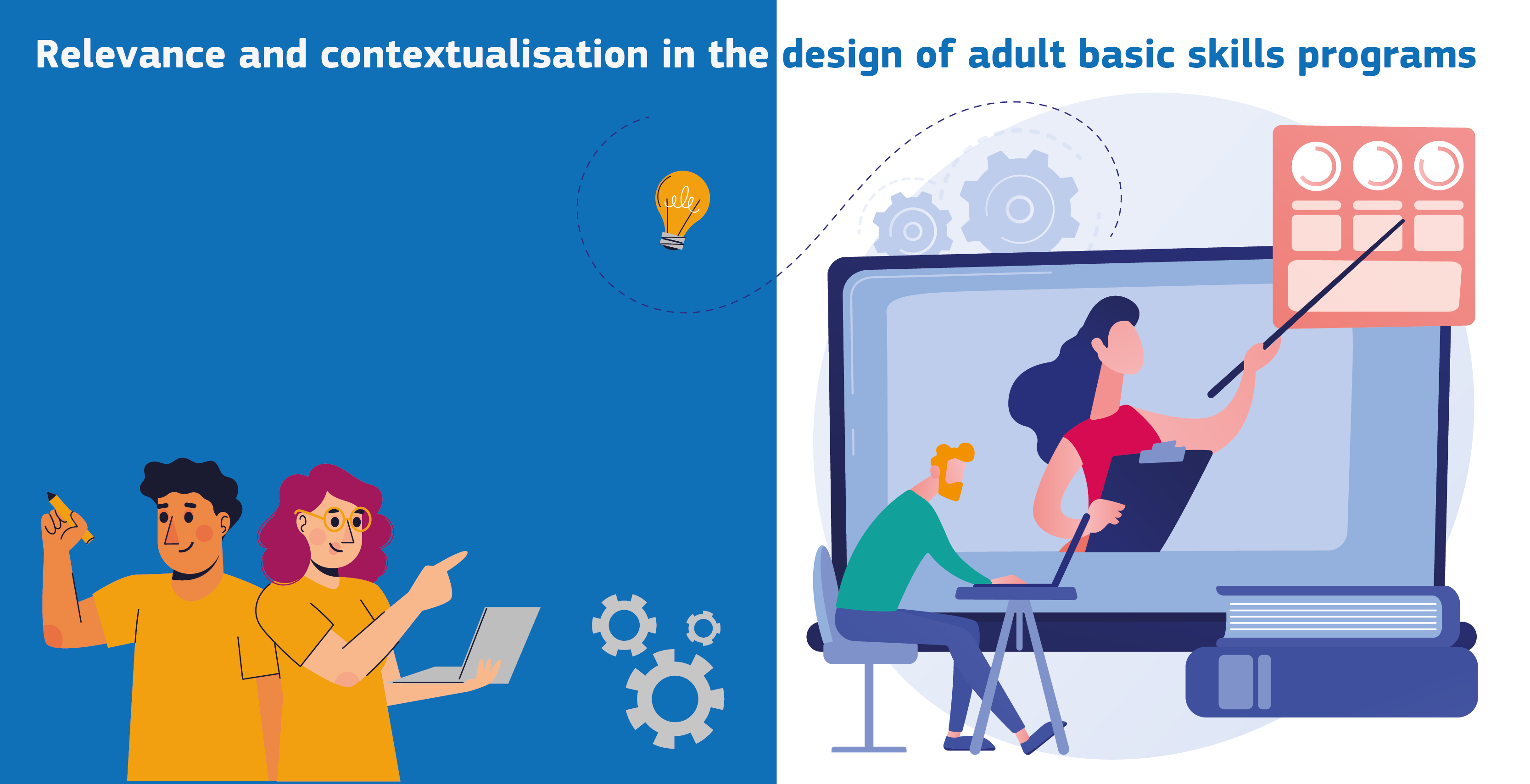Relevance and contextualisation in the design of adult basic skills programs

Adult Learning professionals all over the world have recently celebrated the centennial of the birth of Paulo Freire, one of the greatest world references in any debate about education in general and adult learning in particular.
Freire is at the center of the andragogical tradition that must underpin adult learning approaches, and so are the principles established by Malcolm Knowles:
- Adults need to be involved in the planning and evaluation of their instruction.
- Experience (including mistakes) provides the basis for the learning activities.
- Adults are most interested in learning subjects that have immediate relevance and impact to their job or personal life.
- Adult learning is problem-centred rather than content-oriented.
Relevance and contextualisation are essential principles in adult learning. If the individual adult learners understand how newly acquired information can benefit them, they are more likely to retain it and to be more motivated for further learning. Children and young people may be taught "for the future". Adults need to see the concrete use they can make here and now of their learning, if they are to keep motivated and persist in their educational path. That is why they also need to be able to work with tasks that are relevant to their own everyday situation.
What we are required to do with our basic skills is always contextualised, in the sense that it is situated within a particular socio-cultural setting. We will use different aspects of the skills depending on our social or professional group (e.g. nurses, teenagers, academics); the kinds of activities we engage in (e.g. shopping, dealing with bureaucracy, studying etc. ); and the different social and institutional contexts in which we act (school, work, home etc.) Tailored training has proven to be a motivating factor in adult learning and the course content should be based on topics that are related to individuals’ everyday life, such as work, other education, voluntary work, follow-up of children, personal finance and leisure activities.
Training adults with different background when it comes to employment, family situation, interests, etc. can be challenging in many ways. A good approach could be to create courses based on specific topics to gather adults with similar interests in the same course. Relating basic skills training to professions is meaningful and motivating for the participants. Courses that focus on work-related topics from one sector, e.g. kindergarten, health and care, restaurants, etc. make the training more relevant for adults that are searching for a job or already work in that specific sector.
One framework - different contextualised course content
The need to tailor the courses to the specific context of each learner is what determines that basic skills courses should not have a common curriculum, but rather be based on a framework containing a series of general indicators that can be adapted to specific needs.
To be able to run a course that the learners experience as relevant, and to be able to adapt and concretize the framework indicators to the different contexts in which the learners live and act, the teacher will need to engage the cooperation of the learners themselves in their search for learning materials. An educational approach that engages the learners' interests, empowers them to direct their learning process and decide their learning path, and enables them to continuously self-assess their progress is an essential factor to ensure the success of learning provision based on a national framework.
A personal learning plan (PLL) is a learner tool, although such plans are typically developed in collaboration with teachers and counsellors. The aim of the PLL is to help the individual learner achieve short- and long-term learning goals. PLLs are based on sound andragogic principles related to motivation, persistence and relevance of the learning. Developing an ownership to the PLL enables adult learners to decide what they want to learn, how they are going to learn it, and why they need to persevere in their learning process to achieve their personal goals.
Several general frameworks containing levels and indicators for different skills have been developed and are being developed at European level. Many European countries have developed adapted national versions and are implementing the type of curriculum-free, contextualised learning described in this article. Training the teachers to be able to use the frameworks as base for teacher plans that are customized to the needs of the learners is also an important part of the policy implementation process. The European Basic Skills Network is looking forward to establish frames of cooperation with countries who wish to further develop their adult basic skills policy and the implementation processes for these important issues.




